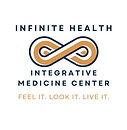Strokes can have a significant impact on individuals and their families, making stroke care a crucial topic. Understanding what stroke care involves and why it's important can help in preventing and managing strokes effectively.

Understanding Stroke and Its Impact
A stroke occurs when the blood supply to part of the brain is interrupted or reduced, which can happen suddenly. This interruption can lead to the rapid death of brain cells, impacting motor functions, speech, and potentially causing long-term disability. There are two main types of strokes: ischemic, caused by a blockage, and hemorrhagic, caused by a ruptured blood vessel.
The impacts of a stroke can vary widely, from temporary muscle weakness to severe physical and cognitive impairments. It's not just the immediate effects that are concerning, but the ripple effect on independence, mental health, and quality of life for both the individual and their family. As such, understanding the nuances of stroke care becomes not just advantageous but essential.
At the forefront of medical innovation, Infinite Health Integrative Medicine Center is offering new hope and advanced therapies for stroke patients. By harnessing regenerative medicine, they provide treatments that not only mitigate the immediate impacts of strokes but also support long-term recovery.
Recognizing the Symptoms of Stroke
Recognizing the signs of a stroke early can be life-saving. Common symptoms include sudden numbness or weakness in the face, arm, or leg, especially on one side, confusion, trouble speaking, difficulty seeing, trouble walking, and severe headache with no known cause. Swift recognition and response can dramatically change outcomes for stroke patients.
An acronym that serves as a helpful guide for recognizing stroke is FAST: Face drooping, Arm weakness, Speech difficulty, and Time to call emergency services. This quick guide is crucial in ensuring that individuals get the necessary medical intervention quickly, potentially minimizing the long-term damage of a stroke.
The Importance of Immediate Medical Care
In the aftermath of a stroke, every second counts. Immediate medical care is vital because it can significantly increase the chances of recovery and reduce the extent of impairment. Treatments administered within the golden window—the critical first few hours—can help restore blood flow to the brain and prevent further brain damage.
Access to high-quality stroke care facilities and prompt treatment like clot-dissolving medications or mechanical thrombectomy can make the difference between recovery and long-term disability. It underscores the crucial need for awareness about stroke symptoms and rapid response, connecting patients with the appropriate care swiftly.
At Infinite Health IMC, they offer a forward-thinking approach to stroke recovery, utilizing regenerative medicine to enhance healing and promote better outcomes after immediate medical intervention.
Components of Comprehensive Stroke Care
Stroke care encompasses a broad spectrum of phases from acute treatment to long-term rehabilitation and support. From the moment a stroke is suspected, the healthcare system springs into action, first with emergency response, then diagnosis and treatment, followed by a comprehensive rehabilitation process.
Recovery isn't just about the initial treatment; it's a continuum that involves physical therapy to regain strength and coordination, occupational therapy to relearn everyday activities, and speech therapy to address communication challenges. Additionally, psychological support and counseling are vital components for comprehensive care.
Regenerative therapies can be intricately integrated into the recovery journey, offering personalized treatments that encourage self-healing and repair within the brain. At Infinite Health, these therapies are tailored to each individual, addressing specific needs and enhancing overall recovery.
Preventative Measures and Lifestyle Changes
Prevention is a fundamental aspect of stroke care, involving lifestyle changes aimed at reducing risk factors associated with strokes. These often include managing high blood pressure, diabetes, maintaining a healthy weight, quitting smoking, and leading an active lifestyle.
Incorporating a balanced diet rich in fruits, vegetables, and whole grains, along with regular exercise, can help maintain cardiovascular health and lower stroke risk. Regular check-ups with healthcare professionals are also crucial in monitoring health parameters that could predispose an individual to stroke.
For those who have experienced a stroke or have high risks, programs like Infinite Health's 360 Age-Reversal Program provide personalized approaches to maintaining health and preventing reoccurrence through comprehensive lifestyle guidance and advanced medical care.
Conclusion
In conclusion, stroke care is an essential component of healthcare that encompasses various stages from prevention to recovery. By understanding stroke care, individuals can actively participate in maintenance and recovery processes, ensuring better outcomes.

Comments